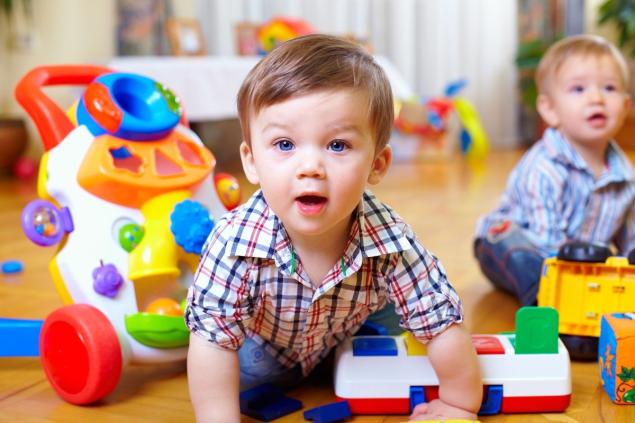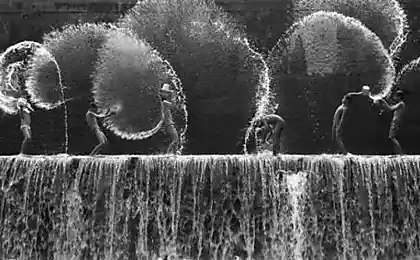170
The fate of the children of Nikitin, who were sent to school at the age of five and endlessly tempered
Raising an independent child - the goal of many parents. But how far are they willing to go to get results? After all, very often parental ambitions subside when faced with the pressure of close relatives and their own environment.
However, even in Soviet times, there were those who did not want to be like everyone else. Even when it comes to raising children. And then the Nikitin family stands apart, whose approach to education did not leave anyone indifferent. And today's edition. "Site" Let’s remember how this amazing family lived.

Engineer Boris Pavlovich Nikitin did not like the methods of educating the younger generation that existed in the USSR. The man was keenly interested in pedagogy and even tried to open a school with his own approach to education. However, permission was not given to him.
View this post on Instagram
Publication by Irina Nikolaeva (@irion_spb)
Fateful was the meeting of Nikitin with teacher Elena Alexeeva. She was 14 years younger, but shared interests quickly brought them closer together. And so they soon got married and it was in their own home that they organized the very school that seemed impossible in Soviet times.
What was the right approach to raising her seven children? New parents believed that the main thing is to create a suitable space around the child, and already he will develop himself. You need to support and inspire the baby, but not too much care, otherwise he will not become independent.

Basic principles of education
Of course, today such few people can be surprised. However, in the 60s and 70s of the last century in our country this was considered unheard of audacity, a movement against the system. And so the whole country soon learned about the Nikitin family. Both supporters of their approach and opponents appeared.
There were those who considered it wrong to temper children, engage in gymnastics with them, teach them to read early and allow children excessive independence. Nikitina did not hide the fact that children from 3-4 years make toys and actively help around the house.
Unusual parents had to constantly prove that their approach had a right to life. Children really grew up smart and open, rarely sick, could read from the age of three. They did well in school and constantly jumped through the classroom. They graduated from school faster than others.

Although Nikitin himself admitted that some mistakes they could not avoid. Great attention to the family generated a lot of gossip, from which it was impossible to protect children. Popularity, when everyone perceives you as an upstart, is a pleasure.
There was a lack of children and communication with peers. After all, they did not go to kindergarten, and in school they were constantly younger than other classmates. This made it difficult to make friends and find a common language with children from other families.
Another disadvantage was the lack of strict discipline in the family. So in adulthood, when you had to learn or work through strength, it turned out to be a problem. We had to fill in the gaps.
View this post on Instagram
Publication by Big Family Nikitin (@nikitiny_official)
What happened to all seven children? Pretty successful. Everyone has found their place in life, everyone has grown up an intelligent person. Yes, they recognize that the healthy habits they developed as children made their lives easier in adulthood. They also use their own families. parenting. None of them ever sent their children to school.
However, even in Soviet times, there were those who did not want to be like everyone else. Even when it comes to raising children. And then the Nikitin family stands apart, whose approach to education did not leave anyone indifferent. And today's edition. "Site" Let’s remember how this amazing family lived.

Engineer Boris Pavlovich Nikitin did not like the methods of educating the younger generation that existed in the USSR. The man was keenly interested in pedagogy and even tried to open a school with his own approach to education. However, permission was not given to him.
View this post on Instagram
Publication by Irina Nikolaeva (@irion_spb)
Fateful was the meeting of Nikitin with teacher Elena Alexeeva. She was 14 years younger, but shared interests quickly brought them closer together. And so they soon got married and it was in their own home that they organized the very school that seemed impossible in Soviet times.
What was the right approach to raising her seven children? New parents believed that the main thing is to create a suitable space around the child, and already he will develop himself. You need to support and inspire the baby, but not too much care, otherwise he will not become independent.

Basic principles of education
- Physical development and a healthy mind
First, in this family, children were not protected from bacteria, but tried in every possible way to strengthen immunity, harden. They provided children with light clothing and simple food. It was impossible to overeat. Maximum movement and regular physical activity. - Emotional development
Secondly, there was constant contact with parents, there were many common activities and even joint sleep. Mom and dad did not forbid the child to learn the world, did not establish far-fetched prohibitions.
- Intellectual development
Thirdly, the analytical and creative abilities of the child should be developed by all means. And for this, parents specifically created games that take into account the interests of each child. After all, it was necessary to avoid coercion, otherwise the vital interest would quickly disappear. - Creative development
Fourth, a creative atmosphere was created where mistakes were not blamed. And any non-standard approaches were only welcomed and supported by all family members.
Of course, today such few people can be surprised. However, in the 60s and 70s of the last century in our country this was considered unheard of audacity, a movement against the system. And so the whole country soon learned about the Nikitin family. Both supporters of their approach and opponents appeared.
There were those who considered it wrong to temper children, engage in gymnastics with them, teach them to read early and allow children excessive independence. Nikitina did not hide the fact that children from 3-4 years make toys and actively help around the house.
Unusual parents had to constantly prove that their approach had a right to life. Children really grew up smart and open, rarely sick, could read from the age of three. They did well in school and constantly jumped through the classroom. They graduated from school faster than others.

Although Nikitin himself admitted that some mistakes they could not avoid. Great attention to the family generated a lot of gossip, from which it was impossible to protect children. Popularity, when everyone perceives you as an upstart, is a pleasure.
There was a lack of children and communication with peers. After all, they did not go to kindergarten, and in school they were constantly younger than other classmates. This made it difficult to make friends and find a common language with children from other families.
Another disadvantage was the lack of strict discipline in the family. So in adulthood, when you had to learn or work through strength, it turned out to be a problem. We had to fill in the gaps.
View this post on Instagram
Publication by Big Family Nikitin (@nikitiny_official)
What happened to all seven children? Pretty successful. Everyone has found their place in life, everyone has grown up an intelligent person. Yes, they recognize that the healthy habits they developed as children made their lives easier in adulthood. They also use their own families. parenting. None of them ever sent their children to school.
Holiday decoration of the house with dry branches resembling the horns of a Bull
Chewing gums of the USSR, which I would like to treat grandchildren

























